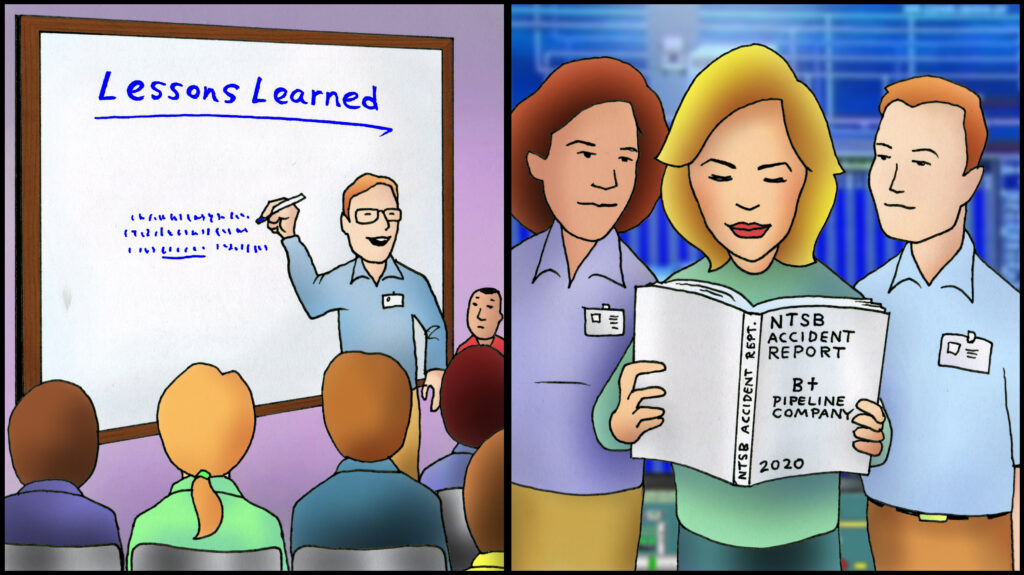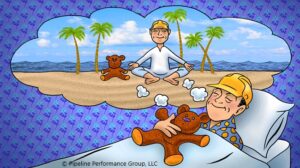What unexpected and unanticipated lessons have been learned in the past year? What new lessons will this year bring? Will organizations and individuals do things differently, based on what is known now? The purpose of this article is to provide information about lessons learned programs and to relate that information to fatigue risk management.
A definition of “lessons learned” from the Department of Energy Lessons Learned Standard is: a “good work practice” or innovative approach that is captured and shared to promote repeat application; or an adverse work practice or experience that is captured and shared to avoid recurrence. I imagine you have implemented some new approaches related to staffing, access to facilities, control room hygiene practices, fatigue mitigation, and/or stress management due to the pandemic. You and your colleagues might have faced some adversities professionally and/or personally. How well are we capturing what worked well and addressing what did not work well?
When we did a survey with multiple control rooms on the effects of the pandemic, there were two areas where controllers indicated significant issues. The two areas, fatigue mitigation and stress management, are related. Controllers reported increases in both job-related, family, and personal fatigue and stress. The changes in work schedules and control room routines affected Controllers and their families. What are you doing to assist Controllers and other employees with these issues?
All pipeline companies ought to be learning from accidents, near misses, abnormal operations, and pandemics. Is it easy or difficult to learn lessons from incidents and apply them throughout an organization in order to improve processes, procedures, and practices?
I was tasked in 1999 to start a lessons learned program for a pipeline company. The company was in trouble with the Department of Justice because it did not do well at learning from past mistakes and taking actions that would prevent human errors that led to spills and leaks.
We sought to implement a simple process, and simplicity of process is often difficult in a socio-technical organization filled with technical experts and people anchored in the past. The process included:
- Errors or incidents have to be reported by all employees.
- An analysis of the incident is done to identify the causes.
- Extract lessons that are relevant to people in different job roles.
- Distribute the lessons using methods that reach the right people.
Nowadays companies may use elaborate software for incident reporting, incident analysis, and for retention of the final reports. It is not likely that most people will wade through that wealth of information to find the lesson that is relevant to them and their jobs.
I know an admirable Control Room Supervisor who developed a lessons learned program for the control room so that the Controllers could easily see the lessons that pertain to them. That is an innovative approach! I believe any of us could adopt a similar practice.
Use the lessons learned from the practices you were forced to adopt last year to improve the fatigue risk management and stress management practices in your organizations. Always be learning and always be seeking to be a better leader, practicing self-care and caring for others.
MANAGING FATIGUE EDUCATIONAL PROGRAM | Charles Alday © 2021 Please Distribute to Others.




